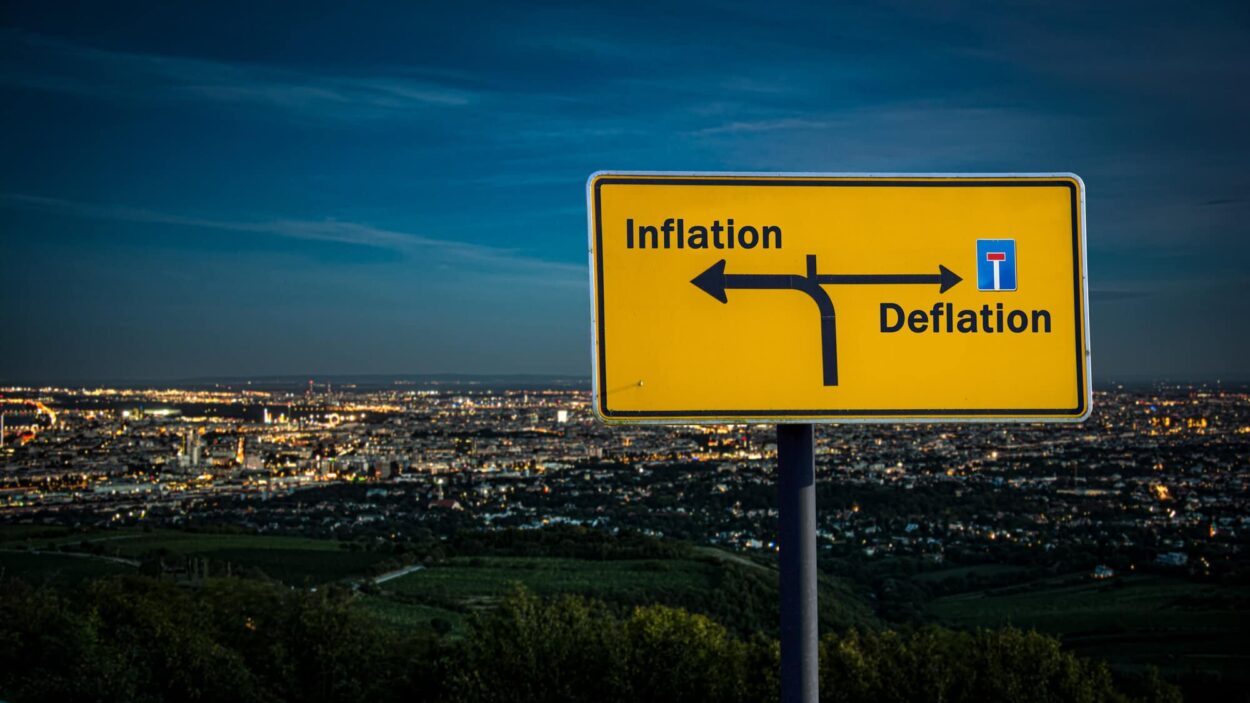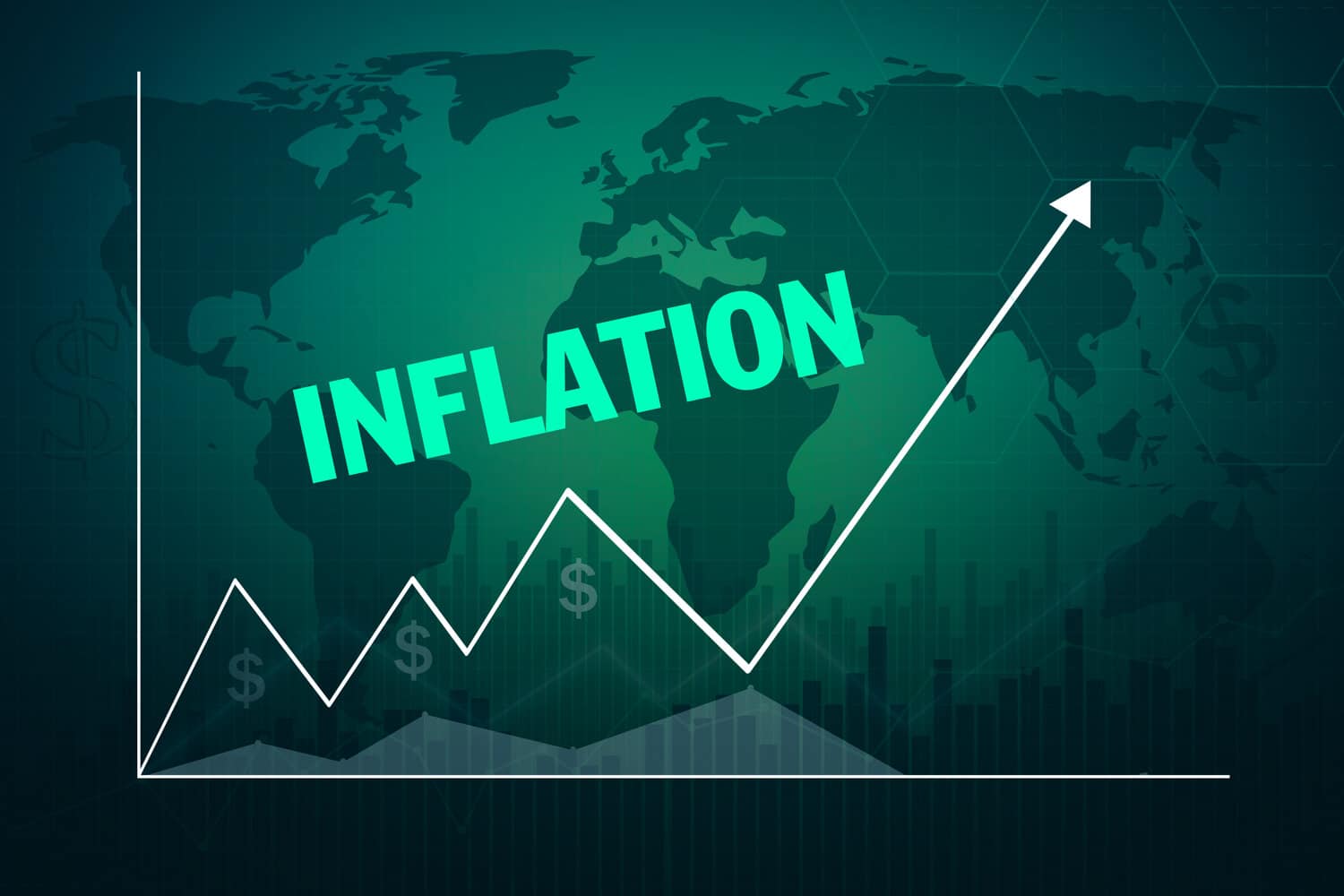Jasmine Birtles
Your money-making expert. Financial journalist, TV and radio personality.


Have you seen that inflation has DOUBLED in the last month? Admittedly that is from a relatively low rate of 0.7% in March to 1.5% in April, which still keeps it under the magic 2%, for the moment. But if it doubles again next month we’re in for a nasty shock.
We have been in a low-inflation, low-interest-rate environment for a while now. Even before lockdown, inflation was low and interest rates and bond yields were also upsettingly low. But now financial observers are predicting higher inflation – at least for a while – but no corresponding lift in interest rates or bond yields.
So, looking at a near future in which, effectively, interest rates are negative (i.e. below inflation), where do we put our money?
There are two main reasons for inflation going up:
In America, which has opened up much quicker than we have in the UK, inflation is already biting hard. See this interesting report about how fast inflation is picking up there, but, because of the huge amount of money-printing the Biden administration went in for in the last few months, the dollar is weak and investors are not interested in buying government bonds (or US Treasuries as they call them – here they are called gilts).
The price of goods out of China went up by 6.8 per cent in April compared with the same month last year which was the biggest leap in more than three years.

So far it’s been oil and utilities that have pushed up inflation here. Already, though, food prices are starting to show some increases. American consumers are seeing a big uptick in food costs and we are likely to follow suit in the next few months. Hold onto the sides, it could be a bumpy ride!
Governments and central banks are telling us that the spike in inflation will be a short-run thing but others disagree. Tim Price of Price Value Partners says “I think the world’s central banks are delusional if they think that inflation will be a short-term thing. I seems to me that they want to crash the monetary system to bring in national digital currencies. The Govt overreaction to corona have made those fears of long-term inflation more palpable. I’m really worried about inflationary outlook. I think inflation will be much much much more sever than that. I don’t trust central bankers as far as I throw them.”
It’s worth bearing in mind, at this point, what John Maynard Keynes said about inflation: “By a continuing process of inflation, government can confiscate, secretly and unobserved, an important part of the wealth of their citizens.”
Certainly some investors think so.
When cryptocurrencies lost nearly a third of their value on Wednesday 19th May, investors rushed into gold, raising its price very nicely for a while.
Here’s how gold performed on Wednesday 19th May when all else was failing:
Myron Jobson from Interactive Investor comments that “It is generally accepted that gold could be used as an inflation hedge and, therefore, rising inflation is necessary for the cost of gold to increase. That’s because gold is priced in US dollars, so when each dollar becomes less valuable it takes more of them to buy the same amount of gold. Conversely, low inflation and a strengthening US dollar should be seen as negative for gold prices.”
Tim Price says that at Price Value Partners they have put a significant portion of their clients’ money across physical gold and silver and miners of these assets. “Our client money has hedges in gold and silver and related mining concerns that have little or no debt attached” he says. “It’s important to diversify as much as possible so we also have money in exchange-traded funds holding physical gold and silver, first ensuring that they do not lend out again. The latest figures from the reserve bank of India indicated that amount of claims on gold relative to actual gold is 100-1. So you have to make sure that ETFs actually have the amount of gold they say they track.”.
He suggests that retail investors copy their diversification plan owning some physical gold and silver and also invest in metals miners and gold and silver ETFs
It’s not just gold that does well in inflationary times. Certain companies that can pass on price rises to customers will do just fine. Companies that sell consumer goods such as soap, first aid, cleaning products will be able to pass manufacturing cost rises on to customers without sales falling.
Myron Jobson says “Don’t fill your portfolio with highly specialist funds. Equities still offer the most growth potential over the longer term and historically provide returns that beat inflation. Rising prices can mean more profit for companies, which in turn boosts share prices but over the long term.”
Some of the other sectors that can benefit from rising inflation are mining companies, banks and commodity funds. Mining companies will see their products – gold, iron etc – increase in price which would greatly increase their profits (after factoring in the increase in some of their own raw materials). Commodity funds too generally do well in inflationary periods as their commodities are likely to rise in price.
It’s the ‘growth stocks’ – the companies that have been doing very well in recent times (particularly the technology-based ones) – that could struggle in a high-inflation environment. They are valued according to assumed revenues that will come in far in the future. That means they are vulnerable to the effects of inflation as it has more time to erode the value of their earnings years from now.
As Tim Price says, above, for individual investors like us, now is likely to be a good time to invest at least some of your money in gold and silver assets both in their physical form (gold bars, sovereigns etc) and in the form of Exchange-Traded Funds (ETFs). It could also be useful to invest in mining companies, although it takes a lot of time and effort to research these and can be quite risky. ETFs and physical metals are easier for those of us who don’t have the time to research the market.
“It is a way to take people’s wealth from them without having to openly raise taxes. Inflation is the most universal tax of all.” Thomas Sowell
This is not financial or investment advice. Remember to do your own research and speak to a professional advisor before parting with any money.

This is my first time pay a quick visit at here and i am really happy to read everthing at one place
Pretty! This has been a really wonderful post. Many thanks for providing these details.
Some interesting information.